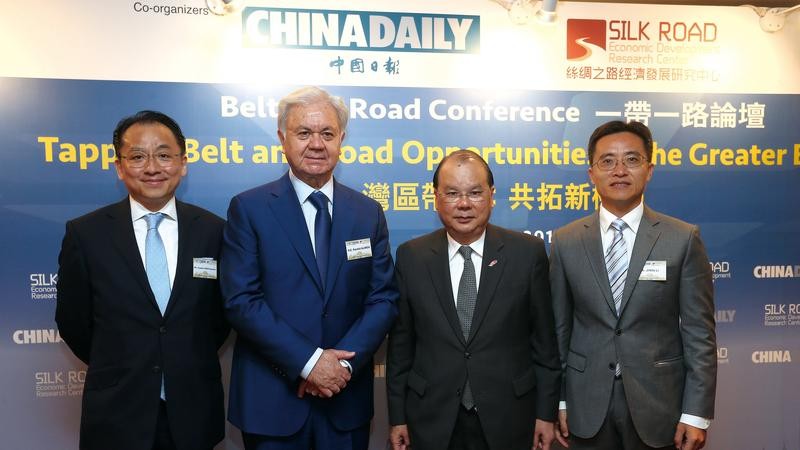2018-10-30
Edith Lu

Hong Kong should aim higher in its bid to become a technological hub so as to grasp the opportunities in technological innovation created by the Guangdong-Hong Kong-Macao Greater Bay Area, former secretary for financial services and the treasury Ceajer Chan Ka-keung has urged. In so doing, he expected the SAR to be more than a capital market. Chan noted that, for a long time, Hong Kong merely wanted to be a financial center, but if the city looks at the Bay Area as an opportunity, greater focus should be laid on building up local technological companies or even unicorns — startups valued at above US$1 billion — as technological innovation is a major push in the Bay Area. “With top-notch universities in the city and their strong research ability, especially in biology and medicine, we need to make greater use of these resources and establish our own leadership in some of those areas,” he said. The former minister, who left the SAR government last year, was invited back to the business school at the Hong Kong University of Science and Technology as an adjunct professor. He had been with the university for more than a decade before joining the SAR government. Chan noted that local universities are unable to play their roles well in the innovation sector due to their lack of research talents. At the University of Hong Kong, for instance, it had 11,935 postgraduate students and 7,786 academic staff as of November last year, according to the institution’s management information unit of the president office. Compared to Peking University in Beijing, the number of HKU’s academic staff wasn’t far less, but its number of postgraduate students was only about half that of Peking University. In view of the talent shortage, Chan suggested that universities in Hong Kong raise their quotas for postgraduate students in areas like artificial intelligence and medicine. “If Hong Kong were to advance in technology and innovation, more talents and researchers are needed. If we cannot find enough higher-educated talents in the city, why not take them from the Chinese mainland, India, South Korea or elsewhere,” he suggested. He believed it would be worthwhile as these students should have already completed their four-year undergraduate courses and come to Hong Kong for advanced studies with their rich knowledge and experience. As for the development plan for the Bay Area, although the nuts and bolts of the project have yet to be unveiled, Chan expected to see the general blueprint and directions for the area. The development plan seems ready to be rolled out soon, with both the mega Hong Kong-Zhuhai-Macao Bridge and the Hong Kong section of the Guangzhou-Shenzhen-Hong Kong Express Rail Link now in service. But, Chan said it would be better to unveil a visionary picture than detailed measures for the time being. “There’s no need for too many details as this would invite some constraints,” he added. “These particular measures could emerge part by part as it would take time to formulate and refine them along the way.” Chan would not speculate on when a final announcement would be made or the reason for the delay.